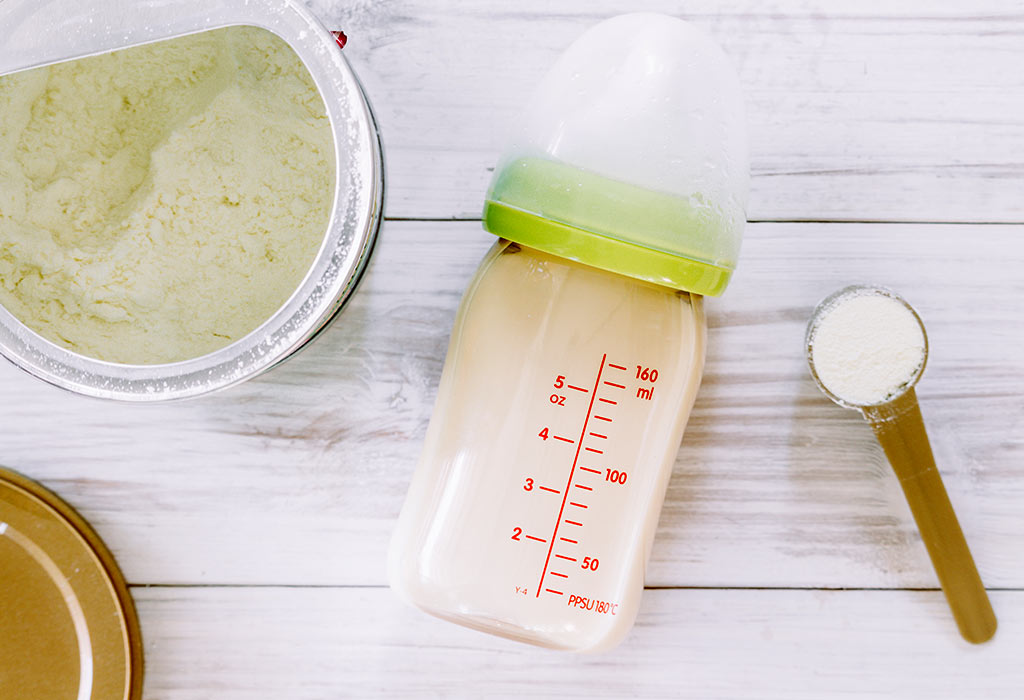
As a new mom, you want nothing but the best for your little one. From the clothes they wear to the food they eat, everything must be perfect, especially when it comes to their brain development. This is where formula milk comes in.
Table of Contents
What is Formula Milk?
Formula milk is an artificial substitute for breast milk, made from a combination of proteins, carbohydrates, vitamins, and minerals that are essential for a baby’s growth and development. It comes in powdered or liquid form and is available in different varieties, depending on your baby’s nutritional needs.
How Does Formula Milk Affect a Baby’s Brain Development?
Breast milk is widely regarded as the best food for babies, thanks to its many health benefits. However, formula milk is also a good alternative, especially for moms who are unable to breastfeed or choose not to do so. Research has shown that formula milk is enriched with nutrients that support a baby’s brain development.
One of the most important nutrients found in formula milk is docosahexaenoic acid (DHA), an omega-3 fatty acid that plays a crucial role in brain development. DHA is essential for the growth of brain cells and the formation of neural connections, which are vital for cognitive function and learning.
Another essential nutrient found in formula milk is iron, which is important for the development of the brain’s gray matter. Iron helps transport oxygen to the brain, which is necessary for the growth of brain cells and the formation of new neural connections.
Other essential nutrients found in formula milk include choline, which supports memory and learning, and folic acid, which plays a crucial role in the formation of the nervous system.
When Should Formula Milk Be Introduced?
The American Academy of Pediatrics recommends that babies be breastfed exclusively for the first six months of life. However, formula milk can be introduced as early as the first few days of life, depending on the mother’s preference and breastfeeding ability.
If you are unable to breastfeed or choose not to do so, formula milk can provide your baby with the nutrition they need for optimal growth and development.
Choosing the Right Formula Milk
When it comes to choosing the right formula milk for your baby, there are many options available on the market. It is important to choose a formula that meets your baby’s nutritional needs and is age-appropriate.
Consult with your pediatrician to determine which formula is best for your baby, especially if your baby has any special dietary needs or medical conditions.
Conclusion
Formula milk can play a vital role in a baby’s brain development, especially when breastfeeding is not an option. It is enriched with essential nutrients, such as DHA, iron, choline, and folic acid, which support cognitive function and learning.
Choosing the right formula milk and introducing it at the appropriate time is crucial for your baby’s growth and development. Remember to consult with your pediatrician before making any decisions regarding your baby’s nutrition.
Frequently Asked Questions
Q: Is formula milk safe for my baby?
A: Yes, formula milk is safe for your baby, as long as you choose a brand that meets the required safety standards.
Q: Is formula milk as good as breast milk?
A: While breast milk is widely regarded as the best food for babies, formula milk is a good alternative, especially for moms who are unable to breastfeed or choose not to do so.
Q: Can formula milk cause allergies?
A: While rare, some babies may be allergic to the proteins found in formula milk. Consult with your pediatrician if you suspect your baby has an allergy.
Q: Can I mix breast milk and formula milk?
A: Yes, you can mix breast milk and formula milk together, but it is important to follow the appropriate ratios and guidelines given by your pediatrician.
Q: How do I know if my baby is getting enough formula milk?
A: Your baby’s pediatrician can help determine how much formula milk your baby needs based on their weight and age. Signs that your baby is getting enough formula milk include steady weight gain, regular bowel movements, and a happy, contented demeanor.
